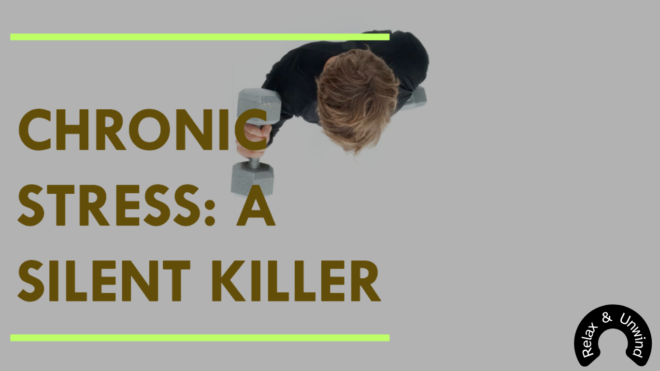Table of Contents
Stress is a physiological and psychological response to a perceived threat or challenge. It is the body’s natural reaction to situations or events that require adaptation or coping. Stress can manifest in various forms and intensities, and it is a normal part of life. When faced with a stressor, the body undergoes a series of physiological changes known as the stress response, which is often referred to as the “fight-or-flight” response. This article explains What can Stress do to a Woman’s Body?
Common Symptoms of Stress in a Woman
Stress can manifest in various ways, and the symptoms can vary among individuals. In women, common symptoms of stress may include a combination of physical, emotional, and behavioral signs. It’s important to note that these symptoms can range from mild to severe, and persistent or severe symptoms may require professional assistance. Here are common symptoms of stress in women:
Physical Symptoms:
- Headaches
- Muscle Tension
- Digestive Issues
- Fatigue
- Sleep Disturbances
- Changes in Appetite
Emotional Symptoms:
- Anxiety
- Depression
- Irritability
- Mood Swings
- Feeling Overwhelmed
Cognitive Symptoms:
- Difficulty Concentrating
- Memory Issues
- Racing Thoughts
Behavioral Symptoms:
- Changes in Social Behavior
- Increased Tendency to Avoid
- Changes in Communication
- Changes in Eating Habits
It’s important to recognize and address symptoms of stress to prevent potential long-term health consequences. If stress symptoms persist or significantly impact daily functioning, seeking support from healthcare professionals, counselors, or mental health specialists is advisable.
Why Does Stress affects women more than it affects men?
It’s not accurate to universally state that stress affects women more than men, as stress can impact individuals differently based on various factors such as personality, coping mechanisms, and life circumstances. However, there are certain reasons why stress may appear to affect women more prominently in some contexts:
Sociocultural Factors:
Societal expectations and gender roles can influence how stress is perceived and managed. Women may experience additional stressors related to societal expectations regarding caregiving, work-life balance, and appearance.
Hormonal Influences:
Hormonal fluctuations during the menstrual cycle, pregnancy, and menopause can influence women’s responses to stress. Estrogen and progesterone levels may impact mood and stress sensitivity.
Higher Rates of Certain Stress-Related Disorders:
Women may be more prone to certain stress-related mental health disorders, such as depression and anxiety. Biological, psychological, and sociocultural factors contribute to these differences.
Coping Strategies:
Men and women may employ different coping strategies in response to stress. Women often seek social support and engage in expressive coping, while men may be more likely to use problem-focused coping.
Tendency to Internalize Stress:
Women may be more likely to internalize stress, leading to symptoms such as anxiety and depression. Men may be more inclined to externalize stress, expressing it through behaviors like anger or aggression.
Role Overload:
Women may face multiple roles and responsibilities, such as managing work, family, and caregiving. This role overload can contribute to higher stress levels.
Social Expectations:
Societal expectations regarding appearance, body image, and aging can contribute to stress in women. Pressure to meet certain standards may lead to additional emotional and psychological stressors.
Rumination:
Women may be more prone to rumination, a process of dwelling on negative thoughts and feelings, which can intensify stress. Men, on the other hand, may be more likely to engage in distraction as a coping mechanism.
Biological Factors:
There are biological differences in how stress hormones, such as cortisol, are regulated between men and women. These differences may contribute to variations in stress responses.
Communication Styles:
Women often have a more expressive communication style, discussing emotions and seeking support, which can be a positive coping mechanism. However, it may also mean they confront and articulate stressors more openly.
It’s important to note that individual responses to stress vary widely, and not all women experience stress in the same way. Additionally, societal norms and expectations are evolving, challenging traditional gender roles. Stress management strategies should be tailored to the individual’s needs and circumstances, recognizing the diversity of stress experiences across genders.
Do men and women respond to stress differently?
Yes, men and women often exhibit differences in how they respond to and cope with stress. These differences can be influenced by various factors, including biological, psychological, and sociocultural aspects. Here are some general patterns of stress response that may vary between men and women:
Physiological Responses:
Men: In response to stress, men may exhibit a “fight or flight” response, involving an increase in heart rate and a surge of adrenaline to prepare the body for action.
Women: Women may display a “tend and befriend” response, characterized by seeking social support and nurturing behaviors. The release of oxytocin, often associated with bonding and social connections, may play a role in this response.
Coping Mechanisms:
Men: Men may be more likely to use problem-focused coping strategies, attempting to directly address the stressor or find a solution.
Women: Women may be more inclined to use emotion-focused coping strategies, focusing on managing the emotional impact of stress through social support, expression of emotions, and seeking understanding.
Social Support:
Men: Men may be more independent in coping with stress, relying on self-reliance and individual problem-solving.
Women: Women often place a higher emphasis on seeking and providing social support. Building and maintaining relationships can be a crucial aspect of coping with stress.
Communication Styles:
Men: Men may be more reserved in expressing their emotions and may prefer to deal with stress internally.
Women: Women tend to be more expressive about their emotions and may seek verbal communication as a way to process and cope with stress.
Hormonal Influences:
Men: Testosterone, the primary male sex hormone, may have stress-buffering effects, potentially reducing the physiological and emotional impact of stress.
Women: Hormonal fluctuations, particularly during the menstrual cycle, pregnancy, and menopause, can influence women’s responses to stress. For example, estrogen may have mood-stabilizing effects.
Health Outcomes:
Men: Chronic stress in men has been associated with an increased risk of cardiovascular issues, substance abuse, and certain behavioral problems.
Women: Women may be more susceptible to stress-related mental health issues, such as anxiety and depression, as well as somatic symptoms.
What can Stress do to a Woman’s Body
Stress can have various effects on a woman’s body, impacting both physical and mental health. The responses to stress are complex and can vary among individuals, but chronic stress may contribute to several health issues. Here are some ways stress can affect a woman’s body:
Menstrual Irregularities:
Chronic stress may lead to disruptions in the menstrual cycle, causing irregular periods or even amenorrhea (absence of menstruation). Stress can influence the hormonal balance necessary for normal menstrual function.
Fertility Issues:
Stress has been associated with decreased fertility in some women. It can affect reproductive hormones and disrupt the normal functioning of the reproductive system, potentially impacting conception.
Pregnancy Complications:
Chronic stress during pregnancy has been linked to an increased risk of complications, including preterm birth, low birth weight, and developmental issues. Managing stress is crucial for maternal and fetal well-being.
Hormonal Changes:
Stress can influence hormone levels, particularly cortisol, adrenaline, and reproductive hormones. These hormonal changes may contribute to imbalances, affecting various bodily functions.
Menopausal Symptoms:
Women experiencing menopause may find that stress exacerbates symptoms such as hot flashes, night sweats, and mood swings. Stress management strategies can help alleviate some of these symptoms.
Digestive Issues:
Stress can impact the digestive system, leading to symptoms such as indigestion, bloating, and changes in bowel habits. Conditions like irritable bowel syndrome (IBS) may be exacerbated by chronic stress.
Weight Changes:
Stress can influence weight, leading to changes in appetite and eating behaviors. Some women may experience weight gain, while others may lose weight due to stress.
Skin Conditions:
Chronic stress can contribute to or worsen skin conditions such as acne, psoriasis, and eczema. Stress management is important for maintaining skin health.
Cardiovascular Health:
Stress is a known risk factor for cardiovascular diseases. It can contribute to high blood pressure, increased heart rate, and the development or exacerbation of heart-related issues.
Immune System Function:
Prolonged stress may suppress the immune system, making women more susceptible to infections and illnesses. It can also impact the body’s ability to recover from illnesses.
Mental Health Issues:
Women are more likely to experience stress-related mental health issues, including anxiety and depression. Chronic stress can contribute to the development or worsening of these conditions.
Headaches and Migraines:
Stress is a common trigger for tension headaches and migraines. Women experiencing chronic stress may be more prone to these types of headaches.
Sleep Disturbances:
Stress can interfere with sleep, leading to difficulties falling asleep, staying asleep, or experiencing restful sleep. Sleep disturbances can further contribute to stress-related health issues.
Musculoskeletal Issues:
Chronic stress can cause muscle tension, leading to symptoms such as muscle aches, tension headaches, and back pain.
How can Women Better Manage Stress?
Managing stress is crucial for maintaining overall well-being. Women can employ various strategies to better cope with stress and promote mental and physical health. Here are some effective ways for women to manage stress:
Practice Mindfulness and Relaxation Techniques: Engage in mindfulness meditation, deep breathing exercises, or progressive muscle relaxation to help calm the mind and reduce stress levels.
Regular Exercise: Incorporate regular physical activity into your routine. Exercise has numerous benefits, including the release of endorphins, which can improve mood and reduce stress.
Establish Healthy Sleep Habits: Prioritize good sleep hygiene by maintaining a consistent sleep schedule, creating a comfortable sleep environment, and avoiding stimulants before bedtime.
Maintain a Balanced Diet: Eat a nutritious and well-balanced diet. Ensure you’re getting adequate vitamins and minerals, as nutritional imbalances can contribute to stress.
Connect with Others: Foster social connections and seek support from friends, family, or support groups. Sharing concerns and experiences can provide emotional relief.
Set Realistic Goals: Break down tasks into manageable goals and prioritize them. Avoid overcommitting and be realistic about what you can accomplish.
Time Management: Efficiently manage your time by creating a schedule or to-do list. This helps prevent feeling overwhelmed and allows for better organization of tasks.
Learn to Say “No”: Recognize your limits and be comfortable saying “no” when necessary. Setting boundaries helps prevent overcommitting and reduces stress.
Engage in Relaxing Activities: Dedicate time to activities you enjoy, such as reading, listening to music, taking a bath, or spending time in nature. These activities can provide a mental break and promote relaxation.
Practice Self-Compassion: Be kind to yourself and avoid self-criticism. Recognize that it’s okay not to be perfect and that everyone faces challenges.
Counseling and Therapy: Seek professional support through counseling or therapy. A mental health professional can provide coping strategies, insights, and a supportive space to explore stressors.
Express Emotions: Find healthy ways to express your emotions, whether through journaling, art, or talking with a trusted friend. Bottling up emotions can contribute to stress.
Create Boundaries: Establish clear boundaries between work and personal life. Avoid bringing work-related stressors into your personal time.
Engage in Hobbies: Dedicate time to hobbies and activities that bring you joy and relaxation. Having interests outside of work and responsibilities is important for overall life satisfaction.
Seek Professional Advice: If stress becomes overwhelming, consider seeking guidance from a healthcare professional or mental health specialist to explore additional coping strategies.
Remember that effective stress management involves a combination of strategies that work for you personally. Experiment with different approaches, and tailor your stress management plan to your individual preferences and needs. It’s also essential to be patient with yourself as you work toward finding the most effective techniques for managing stress in your life.
(FAQs)
Can stress affect women’s menstrual cycles?
Yes, chronic stress can disrupt hormonal balance and menstrual cycles, leading to irregular periods, skipped periods, or changes in menstrual flow.
How does stress impact fertility in women?
Stress can interfere with ovulation and fertility by disrupting hormonal signals necessary for conception, making it more difficult for women to conceive.
Are women more susceptible to stress-related mental health disorders?
Yes, women are more likely than men to experience anxiety and depression, with stress serving as a significant contributing factor to the development of these disorders.
Can stress affect women’s reproductive health during pregnancy?
Yes, high levels of stress during pregnancy can increase the risk of pregnancy complications such as preterm birth, low birth weight, and developmental delays in the baby.
What are some effective stress management techniques for women?
Effective stress management techniques for women include mindfulness meditation, deep breathing exercises, yoga, journaling, and engaging in creative activities.
When should women seek professional help for stress management?
Women should consider seeking professional help if they experience persistent or severe stress symptoms that interfere with daily functioning, relationships, or overall quality of life.



